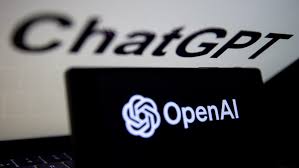OpenAI, the Microsoft-backed artificial intelligence firm behind ChatGPT, is laying the groundwork for a bold transformation of its flagship chatbot. According to a recently surfaced internal strategy document titled “ChatGPT: H1 2025 Strategy,” OpenAI envisions ChatGPT evolving into an all-encompassing “AI super assistant” that intimately understands individual users and acts as a primary interface to the internet.
The document, disclosed during the legal discovery process in the ongoing Google search antitrust case brought by the U.S. Department of Justice, offers a glimpse into OpenAI’s long-term vision for artificial intelligence. Although heavily redacted, the strategy paper outlines a future where ChatGPT becomes not just a conversational agent but a deeply personalized assistant capable of managing tasks, browsing the internet, making recommendations, and possibly even integrating into users’ physical environments through specialized hardware.
This shift marks a significant evolution from ChatGPT’s current capabilities. While the chatbot already boasts advanced natural language understanding, coding support, and image interpretation, OpenAI’s next iteration aims for a far more proactive, intuitive, and user-centric experience. The assistant would learn from each interaction, tailoring its responses, suggestions, and actions to the user’s preferences, habits, and routines.
Interestingly, the document also emphasizes the importance of hardware in realizing this vision. OpenAI appears to believe that physical devices perhaps wearables or home assistants will be critical in enabling seamless, context-aware interactions. This suggests that the company may follow in the footsteps of tech giants like Apple and Amazon by creating dedicated AI-integrated hardware.
The implications of such a transformation are vast. If successful, OpenAI’s AI super assistant could challenge not only Google Search but also voice assistants like Amazon Alexa, Apple’s Siri, and Microsoft’s Copilot. It would essentially redefine how individuals access and interact with information online.
As the competition in AI heats up, OpenAI’s plans indicate a strategic pivot toward deeper user integration and utility. With a focus on personalization, proactivity, and omnipresence, the future of ChatGPT may lie not just in conversations but in becoming an indispensable part of daily digital life.

